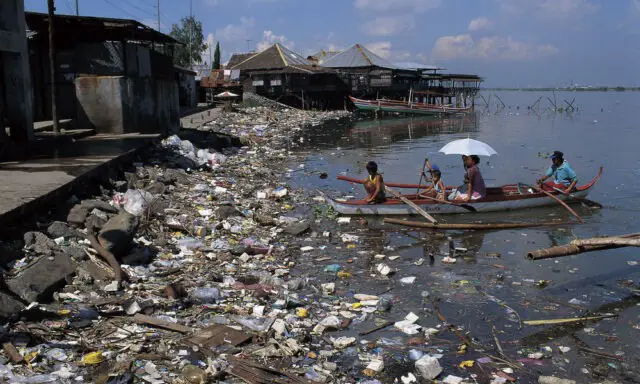
“It produces an immense sadness to think that nature speaks while the human race does not listen”
Not only masks and gloves but also plastic food packaging and other products at home are inundating streets, landfills, and oceans during the pandemic, something that costs economies millions of dollars and represents a serious threat to ecosystems.
The UN conference for trade assures that cooperation between countries and the development of common policies are needed to stop this problem that already existed but has been exacerbated by the health emergency, which the world is currently experiencing.
Plastic pollution was already one of the biggest threats to our planet before Covid-19.
The rapid increases in daily use of certain products that help protect people and stop the spread of Covid-19 are making things worse.
Because about 75% of the plastic generated by the Covid-19 pandemic such as masks, gloves, and bottles of hand sanitizer will become waste that will reach landfills and seas, with a serious cost to the environment.
Although containment measures around the world have generated a dramatic 5% drop in greenhouse gas emissions, the increase in plastic waste already seen in streets, beaches and the ocean is hurting nature.
Masks and gloves a problem for the seas.
Far from having a short-term solution, it worsens year after year, it has triggered a multitude of awareness and environmental awareness campaigns, in which it is committed to discarding single-use packaging to opt for reusable and recyclable items.
But nevertheless. The Covid-19 crisis has erupted to clash squarely with this recent philosophy and multiply by millions the use of two disposable items, which even before the new normal arrives, masks and masks have already become essential to avoid contagion. Gloves.
Fishermen, especially seafood, are already showing their discontent that when they catch their nets they are finding masks mixed with what they catch.
You just have to walk along the beaches and you will see the masks, which in the end with the wind we know that it ends up in the sea and on the seabed.
How does plastic intake affect sea turtles?

When turtles ingest plastic, it remains floating because it cannot submerge due to the waves, this can cause a boat to collide with them.
Ingesting a plastic large enough that the animal is not able to expel it can trigger intestinal obstructions, buoyancy problems, and even death.
If a turtle is in an area where there are pieces of masks and gloves, it can be mistaken for an invertebrate, the bags for example are mistaken for jellyfish and they can be ingested.
Gloves and masks how long they take to disintegrate.
Gloves, masks, and other medical devices used during the Covid-19 pandemic have been transformed into waste and have reached the natural environment. Since the masks can last no more or no less than 400 years to decompose, while biodegradable gloves are estimated to not be discarded for a full 30 years.
Finally, we must know that nature is the divine spirit, that is why we must keep it healthy, and grant it its rights.

